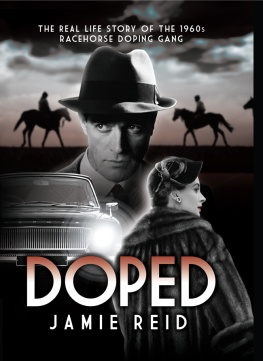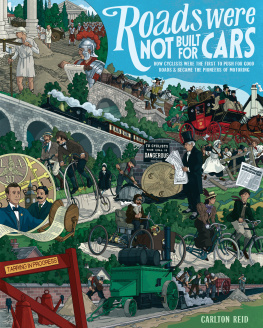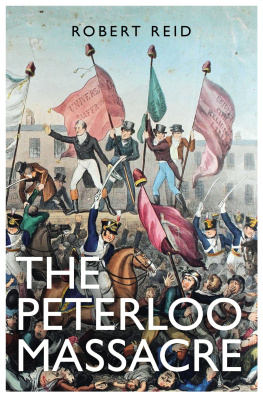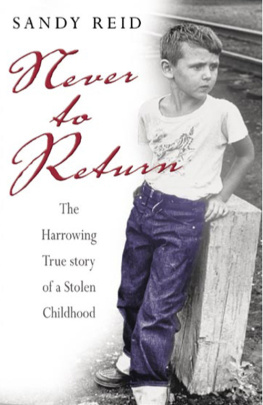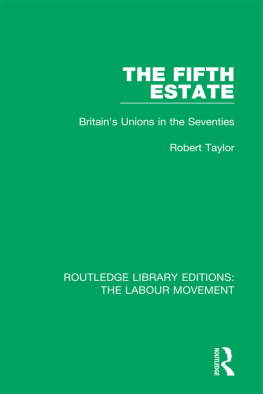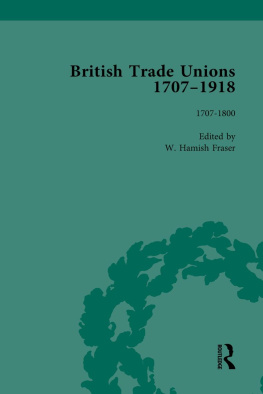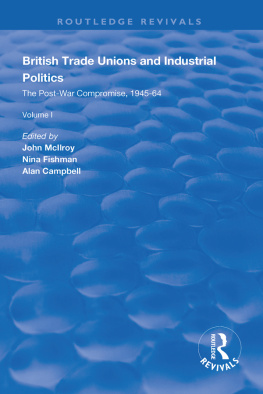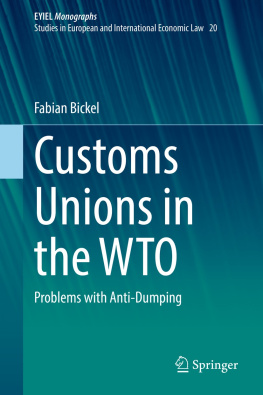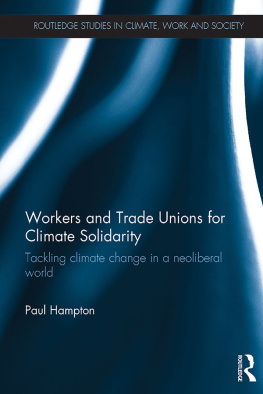Reid - United we stand : a history of Britains trade unions
Here you can read online Reid - United we stand : a history of Britains trade unions full text of the book (entire story) in english for free. Download pdf and epub, get meaning, cover and reviews about this ebook. City: London, year: 2004, publisher: Penguin Group UK;Allen Lane, genre: Politics. Description of the work, (preface) as well as reviews are available. Best literature library LitArk.com created for fans of good reading and offers a wide selection of genres:
Romance novel
Science fiction
Adventure
Detective
Science
History
Home and family
Prose
Art
Politics
Computer
Non-fiction
Religion
Business
Children
Humor
Choose a favorite category and find really read worthwhile books. Enjoy immersion in the world of imagination, feel the emotions of the characters or learn something new for yourself, make an fascinating discovery.

- Book:United we stand : a history of Britains trade unions
- Author:
- Publisher:Penguin Group UK;Allen Lane
- Genre:
- Year:2004
- City:London
- Rating:5 / 5
- Favourites:Add to favourites
- Your mark:
- 100
- 1
- 2
- 3
- 4
- 5
United we stand : a history of Britains trade unions: summary, description and annotation
We offer to read an annotation, description, summary or preface (depends on what the author of the book "United we stand : a history of Britains trade unions" wrote himself). If you haven't found the necessary information about the book — write in the comments, we will try to find it.
Reid: author's other books
Who wrote United we stand : a history of Britains trade unions? Find out the surname, the name of the author of the book and a list of all author's works by series.
United we stand : a history of Britains trade unions — read online for free the complete book (whole text) full work
Below is the text of the book, divided by pages. System saving the place of the last page read, allows you to conveniently read the book "United we stand : a history of Britains trade unions" online for free, without having to search again every time where you left off. Put a bookmark, and you can go to the page where you finished reading at any time.
Font size:
Interval:
Bookmark:
PENGUIN BOOKS
Reid is a relentless and often brilliant rethinker. He takes apart the whole historiography of British organized labour and reassembles it along consistently original lines. If United We Stand does not generate crackling debates among shop stewards and postgraduate students, then they are falling down on their respective jobs Jonathan Rose, The Times Literary Supplement
A supremely sophisticated study of trade unionism for our times Tristram Hunt, The Times
Reids historical narrative, the ingenious classification of occupations and elegant discussion of the interaction between the organizing and political roles of trade unions make this the best ever history of British unions It is impossible in a short review to do justice to the historical erudition and the wonderful stories in this book [a] magisterial history sympathetic, vivid, innovative and informative and unlikely to be surpassed David Metcalf, British Journal of Industrial Relations
A very accessible history of the union movement David Smith, Sunday Times
Alastair J. Reid was born in Glasgow in 1953 and educated at Glasgow Academy and Gonville and Caius College, Cambridge, where he also held a Research Fellowship. Since 1983 he has been a Fellow and Lecturer in History at Girton College, Cambridge. His publications include Social Classes and Social Relations in Britain, 18501914 (1992) and, jointly with Henry Pelling, A Short History of the Labour Party (12th edition, 2005). He is an editor of the History and Policy website at www.historyandpolicy.org.
ALASTAIR J. REID
A History of Britains Trade Unions

PENGUIN BOOKS
PENGUIN BOOKS
Published by the Penguin Group
Penguin Books Ltd, 80 Strand, London WC2R 0RL, England
Penguin Group (USA) Inc., 375 Hudson Street, New York, New York 10014, USA
Penguin Group (Canada), 10 Alcorn Avenue, Toronto, Ontario, Canada M4V 3B2
(a division of Pearson Penguin Canada Inc.)
Penguin Ireland, 25 St Stephens Green, Dublin 2, Ireland
(a division of Penguin Books Ltd)
Penguin Group (Australia), 250 Camberwell Road, Camberwell, Victoria 3124, Australia
(a division of Pearson Australia Group Pty Ltd)
Penguin Books India Pvt Ltd, 11 Community Centre, Panchsheel Park, New Delhi 110 017, India
Penguin Group (NZ), cnr Airborne and Rosedale Roads, Albany, Auckland 1310, New Zealand
(a division of Pearson New Zealand Ltd)
Penguin Books (South Africa) (Pty) Ltd, 24 Sturdee Avenue, Rosebank 2196, South Africa
Penguin Books Ltd, Registered Offices: 80 Strand, London WC2R 0RL, England
www.penguin.com
First published by Allen Lane 2004
Published in Penguin Books 2005
1
Copyright Alastair J. Reid, 2004
All rights reserved
The moral right of the author has been asserted
Except in the United States of America, this book is sold subject
to the condition that it shall not, by way of trade or otherwise, be lent,
re-sold, hired out, or otherwise circulated without the publishers
prior consent in any form of binding or cover other than that in
which it is published and without a similar condition including this
condition being imposed on the subsequent purchaser
978-0-14-193766-3
PART ONE
The 1770s to the 1820s
PART TWO
The 1820s to the 1870s
PART THREE
The 1870s to the 1920s
PART FOUR
The 1920s to the 1970s
Most previous discussions of the history of trade unions in Britain have portrayed a unitary figure of the working class in either a heroic or a sinister light, implying that its members came from somewhere different from the rest of the population and may indeed have been not quite human. What follows in this book has been informed instead by the alternative idea of working people who were an integral part of the society in which they lived. Each of the main chapters therefore begins with an individual life story, subject to its own combination of local influences and its own unanticipated twists and turns of events. Similarly, the analysis of patterns of collective behaviour assumes that groups in different occupations and different parts of the country had their own distinctive experiences, attitudes and expectations. British trade unionists were not a uniform army marching towards a single goal under a disciplined leadership, but rather a cross-section of the working population attempting to meet their immediate needs by whatever means lay at hand, and consequently acting in different ways and at different times.
Within this diversity it is possible, at the risk of some oversimplification, to identify three main types of occupational experience, each producing its own outlook and form of organization. The first of these types consists of those workers mainly concerned with assembling products from a number of components, for example in the medieval making of clothes, in the early-modern printing of books or in the modern building of machinery. Such workers needed an accurate idea of the final product, consequently tending to be better able to read plans and instructions, and generally better educated. They usually lived in long-settled urban areas and were well paid and individually mobile. On this basis they were able to support their own welfare funds and a distinctive type of organization usually referred to as craft unionism, confident of looking after most of its members interests without any outside assistance. In some contrast, the second type consists of workers who were mainly concerned with processing a single raw material through a variety of stages, for example in the mining of minerals, in the smelting of metals or in the spinning of textile thread. These workers needed only a mastery of the particular process for which they were responsible, picked up their skills and gained seniority by observation on the job and could be replaced relatively easily by anyone else who had the opportunity to observe them. They usually lived in concentrations of recent housing around the plant in which they worked, were relatively poorly paid and found it more difficult to move between employers. They therefore found it hard to maintain welfare funds and permanent trade unions, giving rise to a distinctive type of organization which in this survey will be called seniority unionism, usually dependent on government intervention to achieve anything lasting. The third main type consists of workers who performed general manual labouring tasks, basically variations on fetching and carrying on roads and quaysides, or inside other workplaces. These workers needed only to be strong, willing and minimally observant, and were not only easy to replace but often employed on very short-term contracts, by the day or even by the hour. They were usually recent migrants from the countryside, receiving the lowest pay and living in the worst housing. This highly vulnerable situation gave rise to a distinctive type of organization which gradually evolved into what here will be called federal unionism, always dependent on outside assistance either from better-off sympathizers or from massive national organizations.
Given this view of trade unionism as a response to occupational circumstances, it would seem reasonable to expect significant continuities within each of the types outlined. And indeed, although there was also some adaptation to changing times, much of the outlook and behaviour of engineers, coal miners or transport workers in the 1970s would have been quite familiar to their forerunners in the 1870s or even in the 1770s. The engineers and other craft unions mainly wanted to be unimpeded in looking after their own affairs, which gave them a strong commitment to what has come to be known as a voluntarist system of industrial relations, in which employers and employees were largely left to sort out their differences among themselves. In contrast, the coal miners and other seniority unions constantly found themselves weaker than they would have liked in such free collective bargaining and so tended to press for measures of government intervention in their industries, culminating in the nationalizations of the 1940s. The transport workers and other federal unions were equally in need of outside support but were not usually concentrated in single industries, so their pressure tended to be for government regulation of the national labour market to secure reasonable minimum standards of working hours and wages. Partly because of this diversity of aims, and partly because the organizations of the assembly workers were older and stronger, it was their model of voluntarism which became the basic underpinning of wider labour politics in Britain. Indeed, even the forms of state intervention favoured among the process and general workers can be seen as having a marked voluntarist quality, for they were the result of pressure from particular unions rather than of coherent central planning, and they varied between cases according to government assessments of the balance of forces in particular industries at particular points in time. Thus it will be less surprising to find that well into the twentieth century the mainstream of trade-union involvement in politics in Britain was connected not with socialism but with forms of progressive liberalism.
Font size:
Interval:
Bookmark:
Similar books «United we stand : a history of Britains trade unions»
Look at similar books to United we stand : a history of Britains trade unions. We have selected literature similar in name and meaning in the hope of providing readers with more options to find new, interesting, not yet read works.
Discussion, reviews of the book United we stand : a history of Britains trade unions and just readers' own opinions. Leave your comments, write what you think about the work, its meaning or the main characters. Specify what exactly you liked and what you didn't like, and why you think so.


